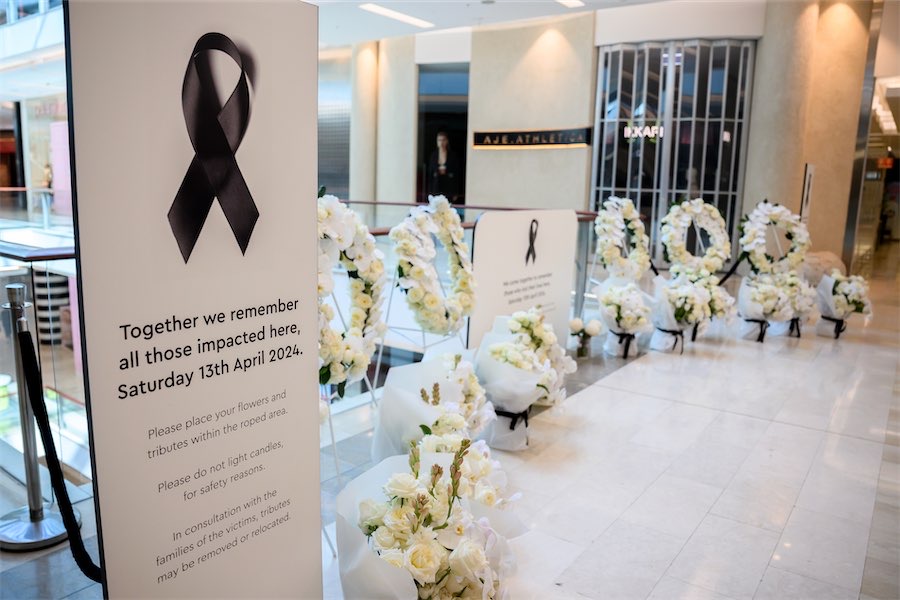THE ACT Government is moving towards forcing nursing homes and residences for people with disabilities to install fire sprinklers, if they don’t already have them.
The office of Environment Minister Simon Corbell told “CityNews” the Government had decided to “commence work towards mandating sprinklers in some aged care and disability facilities”.
If it did this tomorrow, the ACT would be Australia’s first State or Territory to do so without first having a major, deadly fire at a group residence within its borders.
In reality, it won’t happen before the Environment and Sustainable Development Directorate finishes an “investigation, scoping and feasibility assessment” on the issue and presents options to the Government, which is expected to happen at the end of this year.
The decision comes after Minister Corbell gave in-principle support for “the retrospective application of fire sprinkler requirements for nursing homes and aged care facilities” last month, and was also influenced by similar legislation passed by the NSW Government in January.
The change in NSW was in response to a tragic fire at Quakers Hill Nursing Home in late 2011, which killed 11 elderly people and hastened the deaths of about 10 more.
In Queensland, a fire that killed 15 people at the Palace Hostel in Childers in June, 2000 also led to fire sprinklers being retrofitted in aged-care facilities, and in Victoria, similar rules were precipitated by the deaths of nine men with disabilities in a 1996 fire at Kew Cottages.
While aged care is regulated by the Federal Government, whose accreditation standards place a high value on fire sprinklers but stop short of requiring them, the issue becomes one for State and Territory ministers because they are responsible for the application of building codes.
Opposition Planning spokesman Alistair Coe said the Opposition would not necessarily support such changes in the ACT, but would “carefully consider” any such proposal.
“There is always a difficult balancing act between building infrastructure and keeping costs down,” said Coe.
“Of course, the safety of residents in nursing homes is always paramount, however exploring other options of ensuring their safety would be worthwhile.
“For example, in some buildings it is simply impossible to install a sprinkler system.”
As the NSW Government geared up to regulate after the Quakers Hill tragedy, fire safety experts such as the State’s fire commissioner, Greg Mullins, told the aged-care industry that sprinklers are uniquely superior to passive fire safety systems, based on a wealth of evidence from around the world.
“In our view, the Fire Service view, aged-care facilities without sprinklers are an extreme risk to life in the event of fire,” Mullins told an aged care industry conference last year.
Unfortunately, he said, the unique value of sprinklers, which was well-accepted when it came to new buildings, was called into question by some in NSW (and in Queensland and Victoria) when it was suggested that existing care facilities should retrofit them, at significant cost.
The self-proclaimed experts propagating these views, said Mullins, were “leading [aged-care providers] up the garden path”.
In the months after the Quakers Hill fire, various commentators also questioned whether each State and Territory would need to have its own tragedy before it would force the cost of retrofitting on the owners of residential care facilities, or taxpayers.
“The only proven lifesavers are sprinklers,” concluded Mullins. “And I have to ask, really. In other parts of the world, in Victoria and Queensland, sprinklers are required. Do the elderly and care workers in NSW deserve any less?”
To put the issue in perspective, almost 600 aged care homes in NSW, with more than 24,000 residents, did not have fire sprinklers when the new rules came into force.
In the ACT, there are probably less than 20 buildings that would be affected, but nevertheless, the ACT Government is taking steps towards consistency with the larger state that surrounds it in this area of safety regulation.
Who can be trusted?
In a world of spin and confusion, there’s never been a more important time to support independent journalism in Canberra.
If you trust our work online and want to enforce the power of independent voices, I invite you to make a small contribution.
Every dollar of support is invested back into our journalism to help keep citynews.com.au strong and free.
Thank you,
Ian Meikle, editor




Leave a Reply